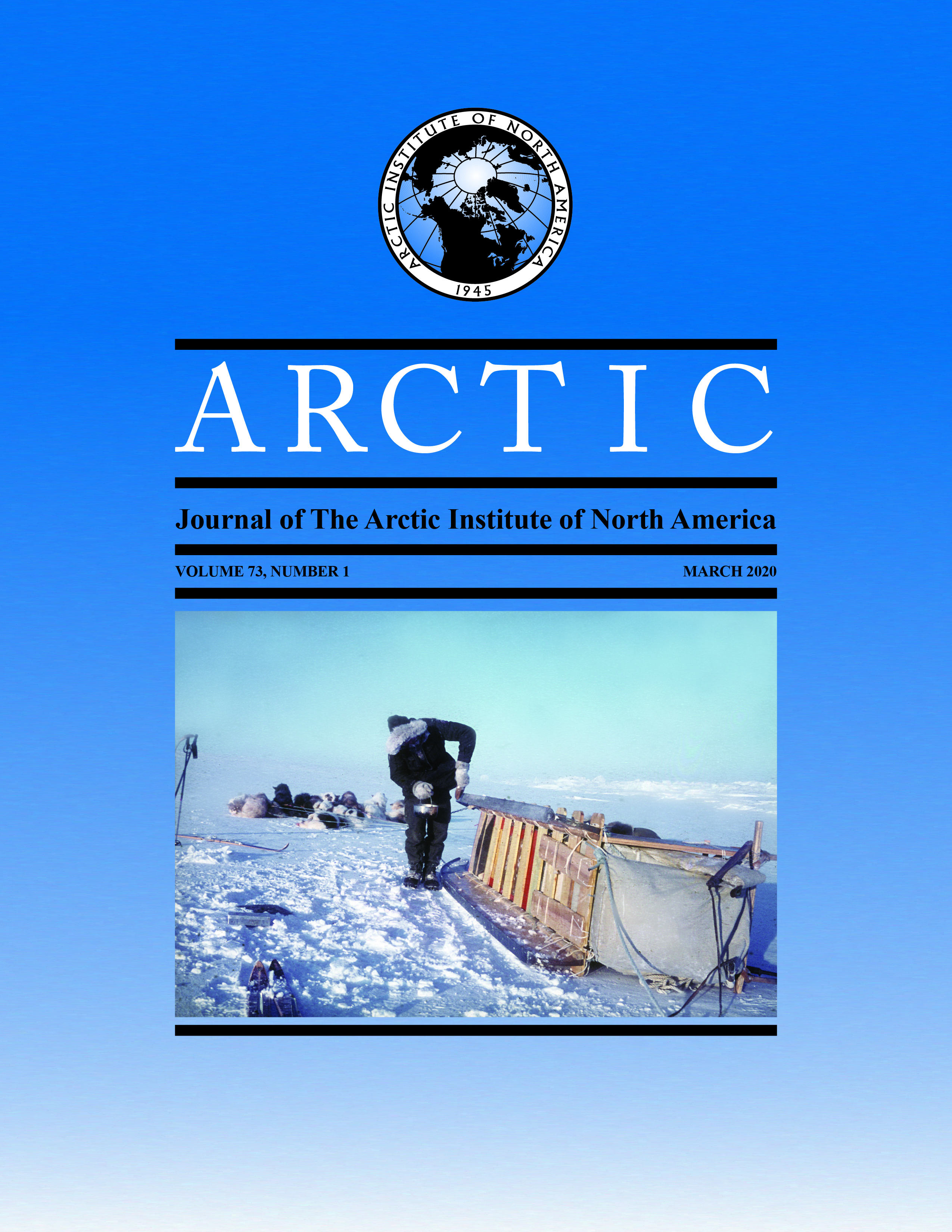Thermal Imaging and Physiological Analysis of Cold-Climate Caribou-Skin Clothing
DOI:
https://doi.org/10.14430/arctic69909Ключевые слова:
Arctic; circumpolar clothing; infrared thermography; Inuit; <i>Rangifer tarandus</i>; reindeer; skin clothingАннотация
Protective clothing is essential for human existence in the Arctic, and caribou-skin clothing has played a pivotal role for millennia. Although people with northern experience often extol caribou-skin clothing, few scientific studies have investigated its properties. We used infrared thermal imaging in a pilot study to compare authentic caribou-skin clothing sewn by traditional Inuit seamstresses with two other types of cold-weather clothing: a standard-issue, Canadian army, winter uniform and an ensemble of modern retail clothing designed for extreme cold (a down anorak and snowmobile pants). To make the comparison, two subjects sequentially wore the three types of clothing—caribou skin, army uniform, and modern retail—in a still air, uniform thermal environment (where radiant temperatures of all environmental surfaces were equal to air temperature) at −21°C to −23°C (−6°F to −10°F). Thermal imaging quantifies the temperature of the outer surface of clothing, thereby providing key, functionally relevant information on the interface where clothing and environment meet. Under otherwise similar conditions, a low clothing surface temperature indicates superior clothing performance and a reduced rate of heat loss from the body to the environment. Caribou-skin clothing was similar to modern extreme-cold retail clothing: the whole-body composite surface temperature of our subjects wearing caribou-skin clothing was −22.1°C to −22.7°C, compared with −21.6°C in both subjects wearing the modern retail clothing. The army winter uniform (−18.9°C to −20.0°C) was inferior. These quantitative results were mirrored by the subjects’ subjective impressions. A particular advantage of thermal imaging is that it pinpoints locations in clothing where heat leaks occur. Although the two types of modern clothing exhibited heat leaks at zippered structures (even though fully closed), the caribou-skin clothing evaded such heat leaks by lacking such structures, because it is donned over the head. The integral hood characteristic of a caribou-skin parka was also superior in comparison to the detachable hood of the army uniform.


